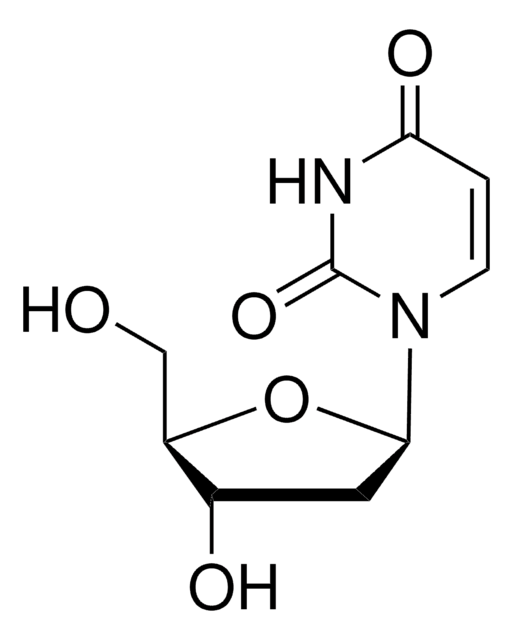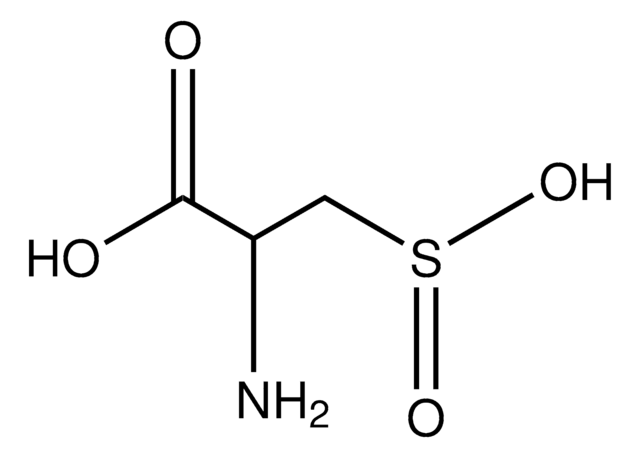D1771
5′-Deoxyadenosine
methylthioadenosine/S-adenosylhomocysteine (MTA/SAH) nucleosidase substrate
Synonym(s):
5′-dAdo
About This Item
Recommended Products
biological source
synthetic (organic)
Quality Level
Assay
≥98% (TLC)
form
powder
solubility
hot water: 19.60-20.40 mg/mL, clear, colorless
storage temp.
2-8°C
SMILES string
C[C@H]1O[C@H]([C@H](O)[C@@H]1O)n2cnc3c(N)ncnc23
InChI
1S/C10H13N5O3/c1-4-6(16)7(17)10(18-4)15-3-14-5-8(11)12-2-13-9(5)15/h2-4,6-7,10,16-17H,1H3,(H2,11,12,13)/t4-,6-,7-,10-/m1/s1
InChI key
XGYIMTFOTBMPFP-KQYNXXCUSA-N
Looking for similar products? Visit Product Comparison Guide
Application
- as a standard in mass spectroscopy
- as an inhibitor for screening thymidine phosphorylase activity
- as a substrate in 5′-Deoxyadenosine deaminase (DadD) assay
Biochem/physiol Actions
Storage Class Code
11 - Combustible Solids
WGK
WGK 3
Flash Point(F)
Not applicable
Flash Point(C)
Not applicable
Personal Protective Equipment
Regulatory Listings
Regulatory Listings are mainly provided for chemical products. Only limited information can be provided here for non-chemical products. No entry means none of the components are listed. It is the user’s obligation to ensure the safe and legal use of the product.
JAN Code
D1771-25MG-PW:
D1771-25MG:
D1771-10MG:
D1771-BULK:
D1771-100MG:
D1771-VAR:
Certificates of Analysis (COA)
Search for Certificates of Analysis (COA) by entering the products Lot/Batch Number. Lot and Batch Numbers can be found on a product’s label following the words ‘Lot’ or ‘Batch’.
Already Own This Product?
Find documentation for the products that you have recently purchased in the Document Library.
Customers Also Viewed
Our team of scientists has experience in all areas of research including Life Science, Material Science, Chemical Synthesis, Chromatography, Analytical and many others.
Contact Technical Service
